WATERVILLE — When Matt McElwee started his farm, China Gardens, he appreciated that Barrels Community Market was willing to buy small amounts of produce from him.
“They were really good to me as a small producer,” McElwee said. “I wasn’t the cheapest guy around, but they were always eager to buy stuff from me, which I appreciate very much.”
So when Barrels’ management announced last month that the store would close for good after it had been closed since August for reorganizing, McElwee said he didn’t mind that he was still owed a few hundred dollars for produce.
He’s not the only one who is owed money by the cooperative, which closed for financial reasons in September.
Several area farmers say that they still haven’t been paid — an amount that totals thousands of dollars — for their produce and products, and they aren’t sure whether they ever will be. Although McElwee said he doesn’t plan to go after Barrels for his money, some other farmers are wondering what their options are.
“I think a lot of people are wondering what happened,” said Sarah Smith, sales manager of The Pick-Up in Skowhegan. “I’m one of them. It’s unfortunate, but we don’t know what happened.”
David Shipman, president of the board of directors at Barrels, declined to comment except to say that the board is still working to get farmers and suppliers at least part of what they are owed.
Meanwhile, the store closing and allegations of money still owed to farmers — who were supposed to benefit from the store as it extended the farmers market season — raises questions about what makes a successful cooperative and whether one can be built from a nonprofit start-up like Barrels.
Food cooperatives are gaining popularity in Maine and across the country as more people seek a local connection to their food and where it comes from.
Maine has a growing number of food cooperatives, including five that opened since 2014, and while the challenges of running a food cooperative do not vary vastly from other small businesses, experts say that many of Maine’s successful ones do share a few things in common.
FINANCING A FOOD CO-OP
Consumer cooperatives are member-owned buying clubs that in most cases run as businesses rather than as a nonprofit organization. Food cooperatives are often started in response to a desire by the community for more connection to local food and a desire to know where their food is coming from.
Cooperatives also vary in their structure from nonprofits, which is how Barrels started under downtown economic development group Waterville Main Street after the group conducted a survey in 2010 asking residents what types of businesses or developments they wanted to see downtown.
Gauging community interest is often a first step towards starting a food cooperative, but it’s more unusual for cooperatives to start under the umbrella of a nonprofit group, said Stuart Reid, executive director at the Food Co-Op Initative in Savage, Minnesota.
Instead, most cooperatives are started by a group of people who will become the first members and investors who are willing to provide initial capital, he said.
Loan offices generally look for cooperative start-ups to have about 40 to 50 percent of their funding come from members before they get a loan, said Gloria LaBreque, New England Loan and Outreach Officer at the Cooperative Fund of New England. The office has financed every existing cooperative in Maine with the exception of Barrels, LaBreque said.
That’s not indicative of Barrels’ success or failure, but it does illustrate an unusual start-up model, she said.
“It’s not the norm,” LaBreque said. “The norm is that a cooperative starts from a grassroots movement, and kind of after you reach a critical mass, people start to say, ‘Yes, we need a retail store.'”
At the Belfast Food Cooperative, one of the oldest in the state, another key to long-term success has been belonging to a larger network of 144 cooperatives nationwide, the National Cooperative Grocers. The network brings the co-ops together to share resources, buying power and educational opportunities, according to Doug Johnson, marketing manager at the Belfast Food Co-op.
The co-op has about 3,900 members, while Barrels had about 175. There’s no key to the number of members or amount of money needed to make a successful co-op, according to LaBreque, but it is important that there are enough members with financial investment in the co-op. Outside resources and networks like the National Cooperative of Grocers are also good resources.
“If one of the co-ops starts to fail, our finances are monitored by the entire group, and if one of us starts to struggle a little bit, there’s support staff that can come in and try and figure out what’s wrong,” Johnson said. “Just being a member of that group is huge. It’s security for us.”
In general cooperatives do not pose a large financial risk to farmers, said Johnson and other experts.
Reid, the executive director at the Food Co-Op Initiative, said that just as with any other business, the keys to success are a good business plan and making sure there is a market for the product.
In the last months of its existence, Barrels was working with Colby College as well as the Cooperative Fund of New England.
“Unfortunately by the time we connected it was too late. There was no coming back from where they were,” LaBreque said. Members of the cooperative voted in September to close the shop’s Main Street store.
Rob Brown, director of business ownership solutions at the Cooperative Development Initiative, said the group worked with Barrels on the transition from a nonprofit group to a cooperative, but it may have been too difficult for the long-term success of the store.
Shipman, in a September interview, also said that the transition from a nonprofit to a cooperative was a difficult one, as the store was used to relying on grant money and funding sources that were no longer available to them after the transition. He also told the Morning Sentinel that the cooperative didn’t have enough members to sustain itself.
“It takes a lot of people to make something like that work,” he said.
IMPACT ON FARMERS
In an email last week, Shipman declined to comment on what the board may have done differently to help Barrels succeed or what some of the challenges were. He did say that the group is still working on ways to try to get farmers and suppliers their money.
For the most part, farmers interviewed by the Morning Sentinel were good-natured about their losses, although they admitted they would like to be paid and were wondering why no one had communicated to them about whether they would be.
At the Pick-Up Cafe in Skowhegan, sales manager Smith would not say how much money Barrels owes, but that they were “way behind on their payments.”
“You can’t make investments and grow your business and not pay your producers,” Smith said. “Your business model has to work in a way that’s not built on the backs of local producers. In the end if it doesn’t work out, like this case, it’s really painful for some folks.”
Jeremy Steeves, the owner of Strawberry Hill Farms in Skowhegan, said he too is owed money and hasn’t gotten word on when or if he will receive it.
Steeves sold maple syrup to Barrels since the store opened in 2010.
“I’ve experienced this sort of thing before,” Steeves said. “You don’t get your hopes up too high in these kinds of situations. I hope everything works out, but it’s a little discouraging.”
Steeves said he is owed about $1,000, which he said is a “substantial amount” but won’t have an impact on his business in the long term. “It’s not going to cause me to go out of business, but every dollar you make is worth something. When you lose money, it’s not fun,” he said.
Johanna Burdet at Moodytown Gardens in Palmyra said her farm was owed about $500 for pork and produce at Barrels. She said the store offered them a kitchen island, some toys and groceries in exchange.
“It doesn’t cover everything they owed us, but we kind of wiped the slate clean at that point,” she said.
Burdet said she doesn’t hold a grudge against the market and said she knew before selling to them that she might be taking a risk. “It’s a community supported thing, so if it doesn’t run anymore, then yes, that falls on the farmers too. So we’re not upset about it at all. It’s unfortunate because it was a great avenue for us to sell our products, but we understand these things happen.”
In Thorndike, Nathan Zimmerman, whose family owns Palmer Hill Farms, said they too are owed about $1,000. “It’s going to make a difference, but if we don’t get money, we’ll probably just keep going,” he said.
Zimmerman said the family gave up on trying to get the money they are owed for produce and milk they sold through Barrels.
“We just couldn’t get anybody to respond,” he said.
Rachel Ohm — 612-2368
Twitter: @rachel_ohm
Send questions/comments to the editors.


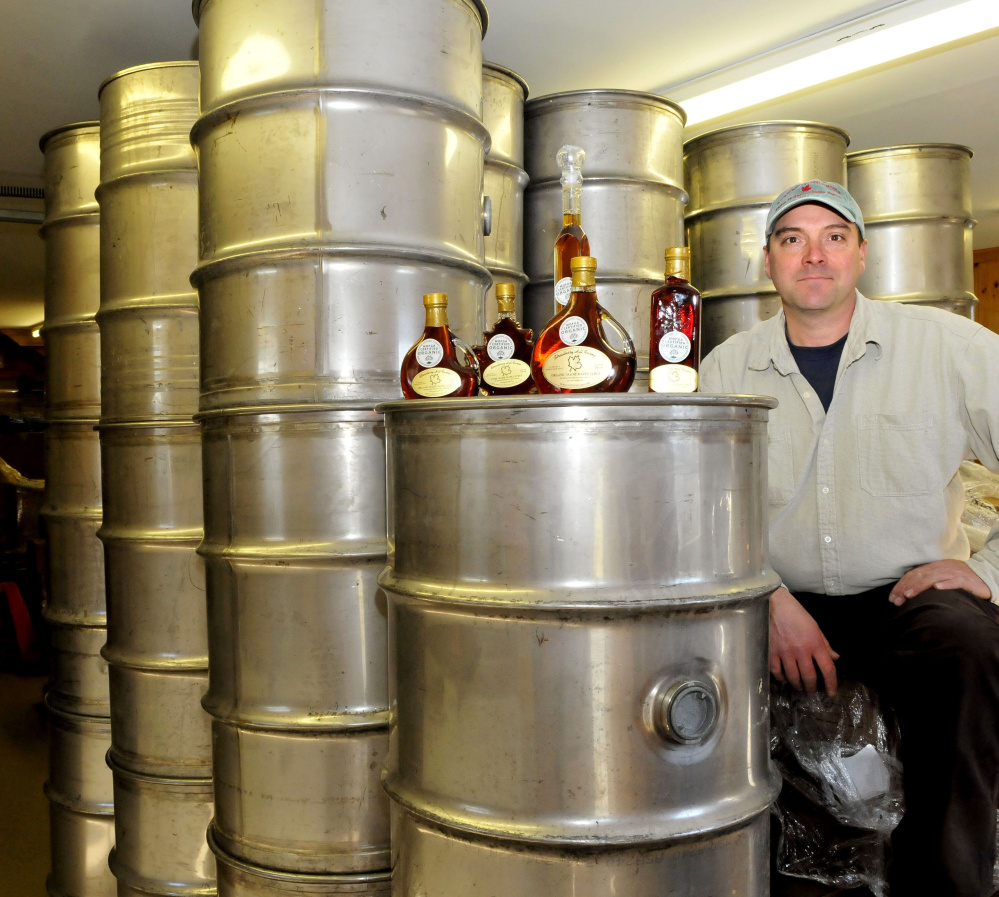

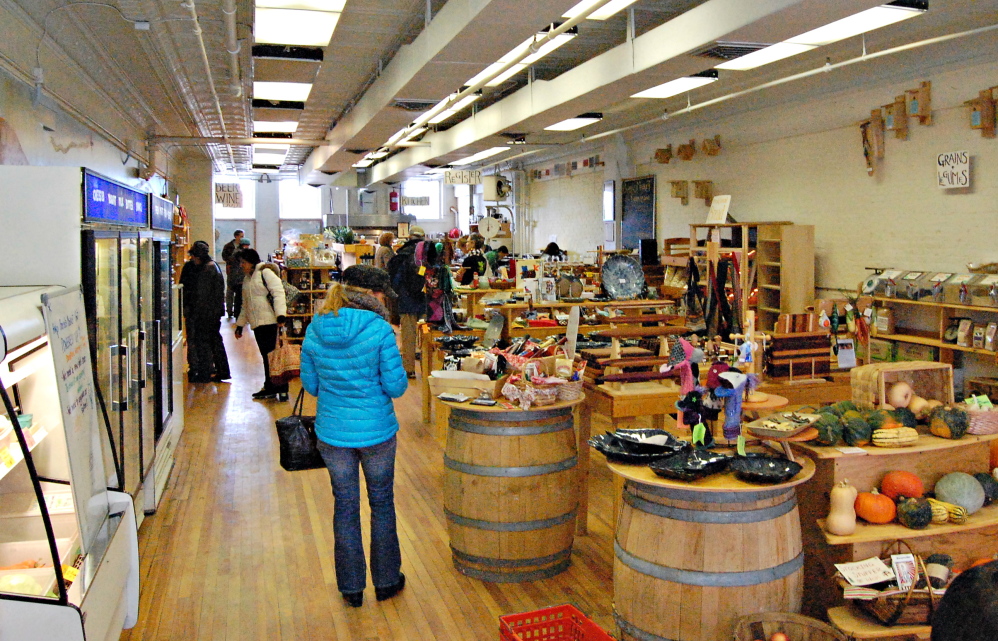
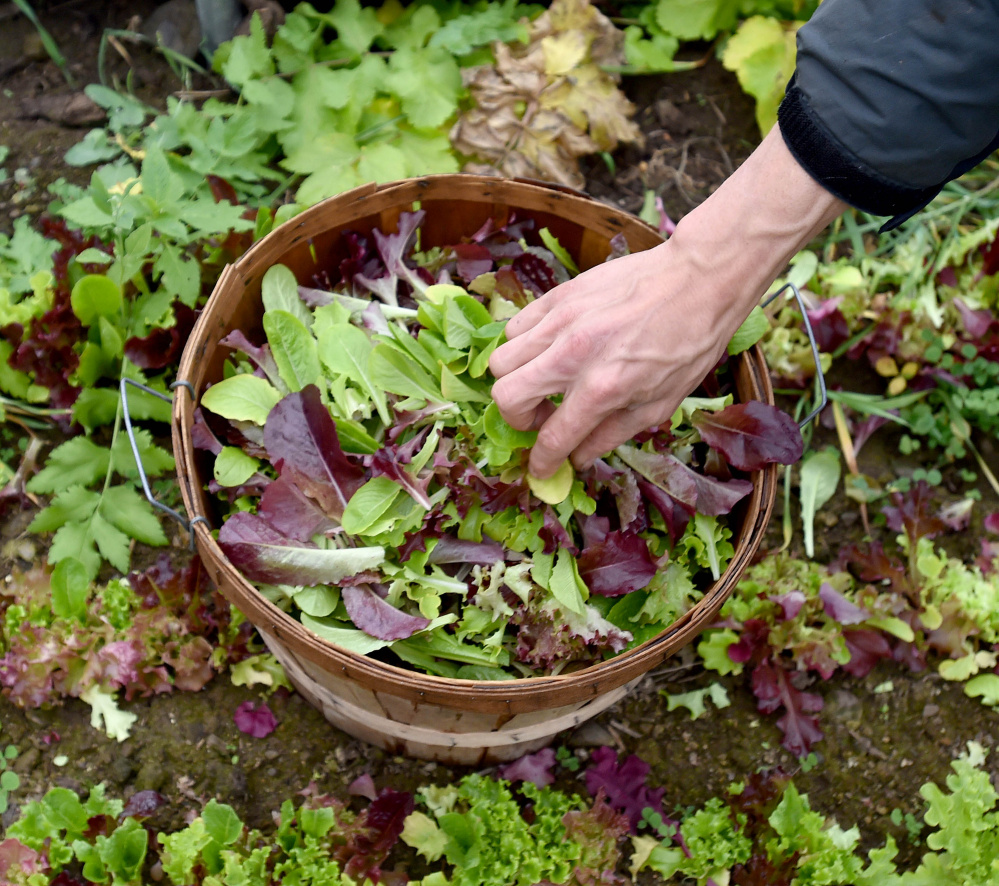
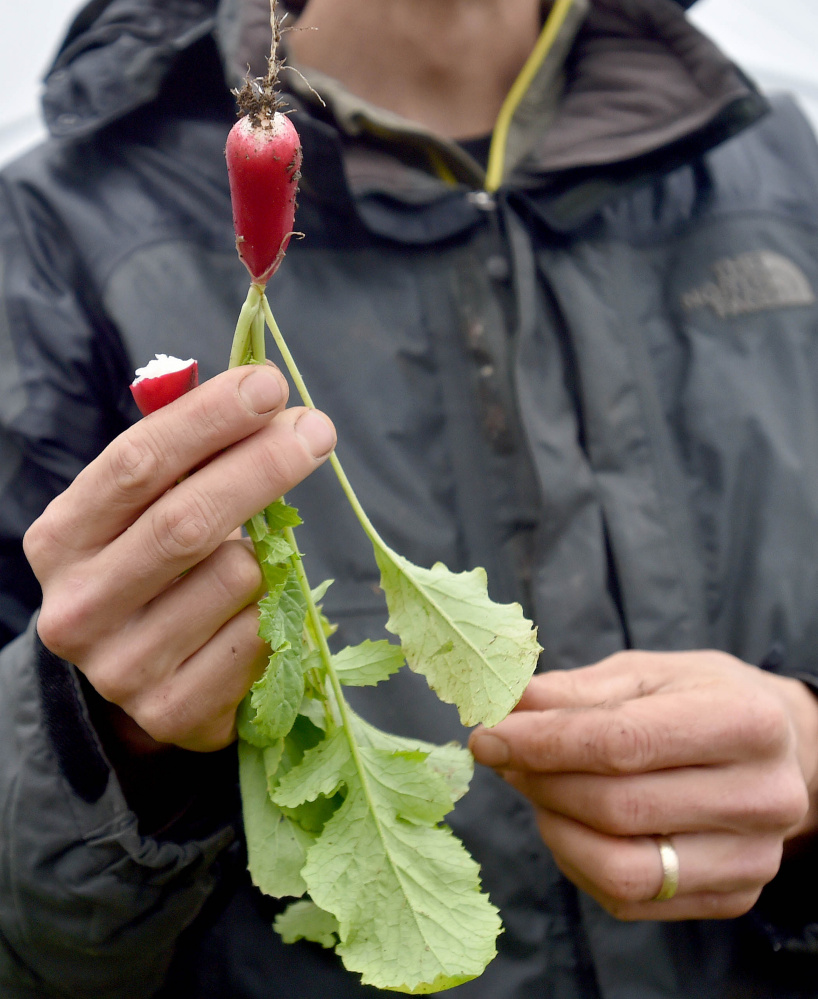
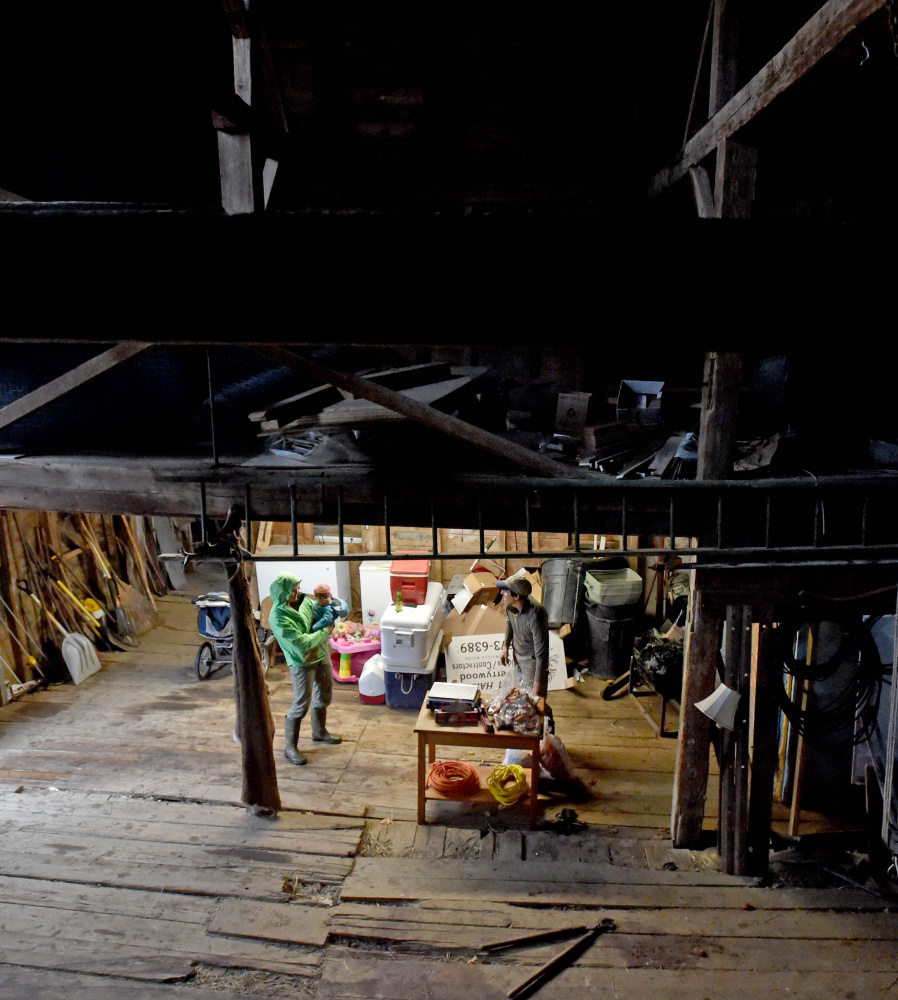
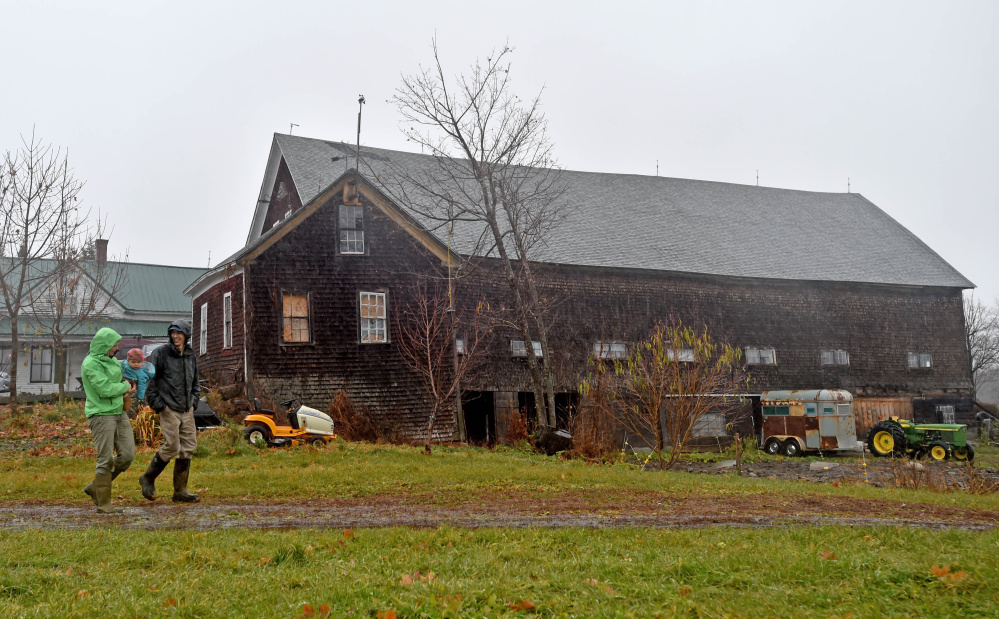

Comments are no longer available on this story